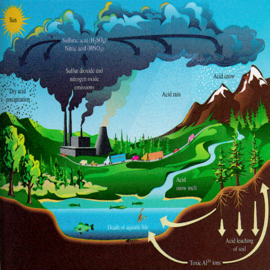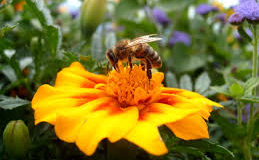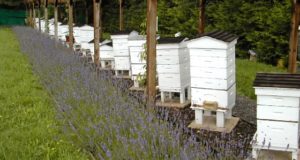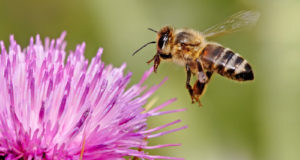Humans are the most important part of the world ecosystem however, the separation we perceive from the ecosystem is a mounting problem. It’s ironic, we do not think we are part of the ecosystem but are 100% composed of it. The distribution of scientific information and our capacity to understand this relationship is clear but but it is thwarted by the commercial interests. They minimize this inter-relatedness and promote concepts of social acceptance, convenience and cost savings. Dismissing the health of the natural environment and weather are also clear but with regards to food, we accept the use of low-quality produce and meat which disturbs our own natural environment of our digestive system, skin, lungs, etc. Our metabolism and toxicity levels are effected; insults on our body constitution lowers our immune response, disturbs our mood and intellect while inflammitory responses lower our energy and strength. This encourages an internal ecosystem, especially our digestive microbial flora, which cannot even extract good nutrition from food on the occasion when we eat healthy food. Marketing of low-quality food and it’s lower cost encourages the denial of polluting the ecosystem and ourselves.
In a moment’s reflection and reading on, there is no wonder in why we continue to dismiss our impact on the ecosystem and allow the pollution of ourselves.
Most people consider that the natural environment and global ecosystem has the ability to dilute pollution and reintegrate it into nature. Perhaps not immediately, but through the dilution process we believe pollution insults to be dispersed over time. Expectations that all matter (gas, liquid, solid) tends toward balance and will ease into the equilibrium of converting toxins back into their primary, natural concentrations and constituents. This is true to a large degree as all matter is energy and simply exists in different forms and rates of deterioration, formation/stability & organization.
However, too much of any local pollution impact clearly upsets that niche, micro-ecosystem, terrestrial, airborne (greenhouse effect) or aquatic environment. We have see many unmistakable local impacts of altered ecology, even death of niches, but also world-wide impacts. Sure, some of these changes are completely natural; an example of this is the natural release of deep pockets of crude oil to Earth’s surface, volcano eruptions, el niño, etc. Rivers, seas, land and air integrated systems are expected to filter-out toxins and nutrients back where they belong somehow. The degree that this is possible clearly shown to have reached pollution saturation that cannot be reintegrated into useful natural states or systems.
That humans are simply part of the ecosystem is our biggest flaw in understanding. Humans, or most humans (especially modernized/modernizing populations) see our species as separate from the ecosystem. We are however the most important and influential living force on our planet. We even change the great forces of weather.
Until we see enough upset and threat to our lifestyle and flaws in perceiving our place in the ecosystem we will continue to exploit, degrade and force nature to seek its equilibrium, or balance. This balance will be without respect to borders, status or hierarchy in the order of genetic complexity or intelligence. Nonetheless, life forms which adapt best will endure best. Some plants have the most simple physical forms like corn, cockroaches or rats for example, and may survive due to epigenetic adaptability (ability to turn on genetic adaptations to unaccommodating conditions). Man may not be able to adapt as quickly. Of course some creatures are synanthropic, or are dependent upon humans for their survival; an example of this is the German Cockroach. In the end, few humans will survive the major ecosystem shifts by natural or man-made phenomena. If we are so unconcerned with how we depend on everything that exists in the natural environment now (believing we are in command and not subjugated by) there is little hope for the masses to survive even large scale natural shift in climate, atmospheric conditions (mostly the sudden change in weather patterns), sea-level change, tectonic plate shift and overwhelming volcano eruption (pumping masses of solid matter into the atmosphere, blocking sunlight and warmth), etc.
Another way toconcieve of how far we have removed ourselves from the natural environment, nature, creatures, air and water is the management of livestock, fishing habits, aquaculture and even vegetal crop cultivation. The trends indicate poor stewardship and toxicity of the food we eat. This insult is not only perceived by humanity it is accepted. To deny that everything which exists outside of our personal body ecosystem is what makes-up what we are in physical form is ludicrous and in reflection, rejection of the obvious or more appropriately neurosis with undercurrents of psychotic disdain of everything we have learned about physics, chemistry, biology, medicine, etc. for over 100 years. We eat food which makes us sick and deny the cause so much so that today’s agricultural trends are swiftly moving towards low-quality, impure, factory-style farming which will make far more people ill than simple infection control. Along the lines of denial are the facts that weather shifts and intensified animal agriculture (largest impact on greenhouse gasses, water degradation, soil depletion) is evolving and developing the world food supply to over-run subsistence agriculture to make much higher percentages of the world world population ill with westernized diseases (heart and circulatory disease/stroke, inflammatory disease [kidney, liver, rheumatoid arthritis, etc], diabetes, cancer, etc. Wait, there’s more, the climate shifts and intense animal agriculture has raised the percentage of animal infections which humans are also susceptible to from 70% to 75%over recent years. Bird-flu, H1N1, Bovine tuberculosis, Ebola and others are just a few easily recognizable infectious diseases newly adapting to infect humans either through exposures or evolution of these most easily evolving life forms.
 Vitamin Agent The Health & Naturalistic Source
Vitamin Agent The Health & Naturalistic Source





